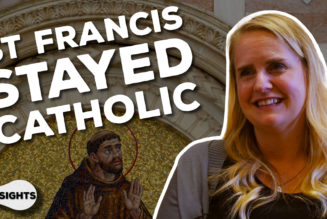
We need to talk about the moral aspects of IVF, and that needs to start in church.
Last week, Alabama’s Supreme Court handed down a decision involving damages for negligence at a fertility clinic in the state. Lax security standards allowed an unauthorized person access to the area where frozen embryos were stored. That person picked up a storage pack — cryopreserved at subzero temperatures — got a bad case of freezer burn, dropped it, and the embryo (fill in the verb) …
Yeah, that’s the question. The embryo died. But you can’t “die” unless you first lived.
The Alabama Supreme Court didn’t get into that question. All it did was decide whether a state law that allows damages for the death of a minor — a law that had already been established to cover the death of an unborn child — applied to an unborn child outside the uterus.
Such a law should not be controversial and, before abortionists came along, it wasn’t. Simple question: If a pregnant woman is assaulted and loses the baby she is carrying, is that an injury for which she can hold the perpetrator accountable? Yes or no? If “yes,” it means that in this particular instance, the law recognizes a separate victim, which is simply what the Alabama Supreme Court did. If “no,” well — I dare you to tell that to the injured woman.
I want to limit the public discussion of this case to this level. This is another instance of where our need to evangelize society toward a culture of life is still significantly lacking, and we do not want to get involved in an extended fight over in vitro fertilization (IVF) in a country whose attention span is so attenuated that it will ensconce damaging legal solutions to avoid having to think about hard problems. We need to talk about the moral aspects of IVF, and that needs to start in church.
That said, I take our readers as understanding and accepting of Church teaching on this subject, which is why I want to tackle the IVF question and to do so from the perspective of Sunday’s First Reading.
The First Reading, from Genesis, describes God’s command to Abraham to sacrifice his son, Isaac, and the old man’s attempt to comply with that command. It joins to the Second Reading, where Paul tells the Romans that God “did not spare his own Son, but handed him over for us all …” The Gospel, on the Transfiguration, reveals God’s glory while enjoining Peter, James and John from discussing what they had seen until “the Son of Man had risen from the dead.” All these Lenten themes clearly point to Good Friday, roughly a month hence.
The account of God commanding Abraham to sacrifice Isaac challenges moderns: How could God ask a father to do that?
Well, we need to remember that God speaks to people where they’re at. The world in which Abraham lived was a world in which human sacrifice existed, albeit not as part of the Jewish faith. One reason the prophets would later rail against the worship of Baal was that the fertility cults that occasionally invaded Israel demanded human — specifically, child — sacrifice. My point is simply: The phenomenon was not unknown in Abraham’s world and God meets people where they’re at.
Up until now, Abraham has put his faith completely in God and God has proven faithful. Abraham picked up from a faraway country — what we would today call Kuwait — to settle in an unknown land. He could have died along the way. He could have lost everything. He could have been killed by the people already there. He wasn’t. And he settled in peace under the oaks of Mamre.
Abraham was an old man. He had a child, by a foreign slave girl (again, in keeping with where people are at), but not his beloved wife. She is old. If he “followed the science,” that hope was gone. But hoping against hope and putting faith in God, Abraham believed … and became a father.
And now God was asking him to give up what — who — he most wanted, most longed for, was most precious to him. Again, would he trust God? Or now declare his non-faith independence?
He doesn’t understand what God has asked of him, just as we often do not when a loved one is sick or dies. But he trusts God, even if it means surrendering what was dearest to him. And it’s his willingness to forego what — who — is dearest to him that God repays a thousand times over, not just saving Isaac but promising Abraham that through this boy his paternity would exceed the stars of the sky or the sands of the seashore. (Jesus, who is the true Isaac, by his death becomes “the firstborn of many, many brothers” — part of Romans 8 not in Sunday’s Second Reading.)
Why? The late Slovak Cardinal Ján Chryzostom Korec had an answer: Because Abraham was willing to give up his fatherhood according to God’s will.
How does that apply to Alabama? Wanting a child is a natural desire; being unable to have one is a heartbreak. But that heartbreak does not justify having a child at any cost. At the cost of technological intervention that, as Pope Pius XII observed more than 70 years ago, turns the domestic hearth into a biological specimen lab. That replaces the creation of a child within a human embrace by the ministrations of a lab technician and a test tube. That produces multiple embryos for potential implantation, with the one voted “most likely to succeed” given a chance at growing to birth. The rest? Literally either discarded, “donated” (ask Planned Parenthood about its charitable giving of fetal body parts) for experimentation, or consigned to a nondescript and indeterminate fate in the freezer.
Abraham can teach today’s wannabe parents some lessons. That life is God’s gift, not a technique. That human limitations are not just “problems to be tackled” — Abraham tried that with Hagar. That parenthood is existentially precious but children are not “products” made, not begotten, on parental specs. That God remains God and he — not man — is Lord of Life and history.
Are we ready to learn?









